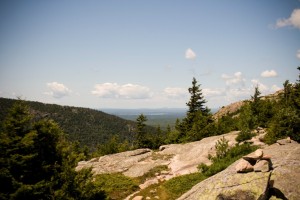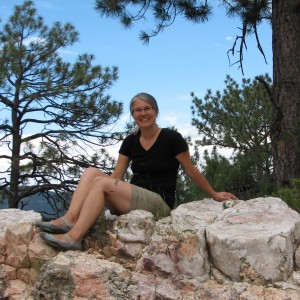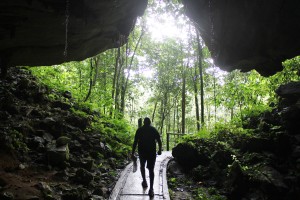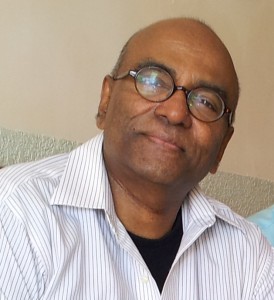“It was a bad breakup that brought me to the dharma,” a teacher once told me. The dharma — and whether or not I’ve been brought to it — is an open question yet. But it was surely a bad breakup that brought me to the island. And the island that made me whole — not just once but twice, so far. It’s good knowing there’s a place that heals heartbreak, because life can be generous with the heartbreak sometimes.
I first found the island in the pages of a catalog. I was just twenty years old, stuck in a humid, landlocked city and itching to get free of a relationship that was hurting. I felt bound to my lover by the delicacy of her mental health; if I went for a long walk to look at the magnolias, I might come home to find her in the bathtub, bloody from a half-hearted suicide attempt. I couldn’t even get to the “bad breakup” stage until I got her some Prozac or something, but that was easier said than done. Going away to college seemed like it might let her down gently. So I looked for the furthest college I could find and found it: a bare refuge of a school, small, out of the way, on the northern ocean’s edge. A place I could start again.
When I told my lover what I hoped to do, she applied and got accepted herself. So my triumphant ride to freedom was on a Greyhound, half the country over with a woman who, by the end, would barely speak to me. That was a pretty bad breakup.
 We went such different ways that few would believe we’d ever known one another. Free, finally, to take long walks without having to worry what sadness might be waiting for me on my return, I fell hard in love with that island. I got a bike and rode it off roads and on, deep into woods bringing nothing with me but my thirst; and I drank from dripping rocks and soaked moss and boughs laced with fog. I would throw my bike into the brush at the base of a mountain trail and climb over red rocks up into a sky that fell over ocean and pine. Until I was finally strong enough to leave.
We went such different ways that few would believe we’d ever known one another. Free, finally, to take long walks without having to worry what sadness might be waiting for me on my return, I fell hard in love with that island. I got a bike and rode it off roads and on, deep into woods bringing nothing with me but my thirst; and I drank from dripping rocks and soaked moss and boughs laced with fog. I would throw my bike into the brush at the base of a mountain trail and climb over red rocks up into a sky that fell over ocean and pine. Until I was finally strong enough to leave.
And it would be there, to that island, that I would drive almost 20 years later, having learned that marriage can be a multiplier of loneliness. That your heart can break with longing for love, despite the ring on your finger and the child you created together out of your two bodies.
I found myself, once again, climbing those rocks up into the sky, this time with a daredevil child in tow and an old dog that preferred the gentler trails. We climbed higher than the vultures and watched their finger-wings glide below us. We’d walk out like dancers on bits of board into a swamp and sit quiet to hear the peepers. I carried my daughter on my back when she got weary, pulled ticks off the dog and I woke early, to see the sun purple the nearest hillside before anyone stirred. And my heart knit itself back together in the astonishing, delicious aloneness.
I wasn’t lonely there, until a few years passed and brought me into love again — unexpected, unsought — and yet there it came, just as thunderous as heartbreak, just as undeniable as the ocean. And I mourned to leave the island, but love rendered it the wrong place to be; if I stayed, I stayed alone, with my love far from me. So I followed love, back to the mainland and away. It nearly broke my heart to do.
It’s been five years now and I haven’t been back since. And I haven’t really needed to.
There’s a story about a teacher who describes the dharma by holding up his teacup. “This is my favorite cup,” he says, “I love it in every way. And I consider it broken already.”
I like tea and I like teacups and I first heard this story as a caution against getting too attached to things. I could also hear it fatalistically: nothing lasts forever, so be ready. But the first part of the story is essential, I think, the part about loving something in every way. Because one of the ways things can be is broken — and hurt, diseased, suffering. What kind of love encompasses even what our hearts rebel against?
On the island, I can be alone and whole, not aching for any place but where I am. But I’m not from there, I’m from away. From the places where I’m broken already, and learning to love, with this heart I have, in every way.
* * * * *
 “Island, Dharma, Cup” is by Alison Coluccio. Alison lives with her partner and teenaged daughter in Ithaca, New York, in an urban eco-village, where she loves gardening to build bird habitat and fun food. In her not-spare time, she studies plant genetics at Cornell in a USDA lab. She’s worked with people and plants in Togo, West Africa and Irapuato, Mexico, and her writing on seeds and spirituality has appeared in Parabola. (Landscape vista photo, above, taken by Caitlin Regan.)
“Island, Dharma, Cup” is by Alison Coluccio. Alison lives with her partner and teenaged daughter in Ithaca, New York, in an urban eco-village, where she loves gardening to build bird habitat and fun food. In her not-spare time, she studies plant genetics at Cornell in a USDA lab. She’s worked with people and plants in Togo, West Africa and Irapuato, Mexico, and her writing on seeds and spirituality has appeared in Parabola. (Landscape vista photo, above, taken by Caitlin Regan.)

